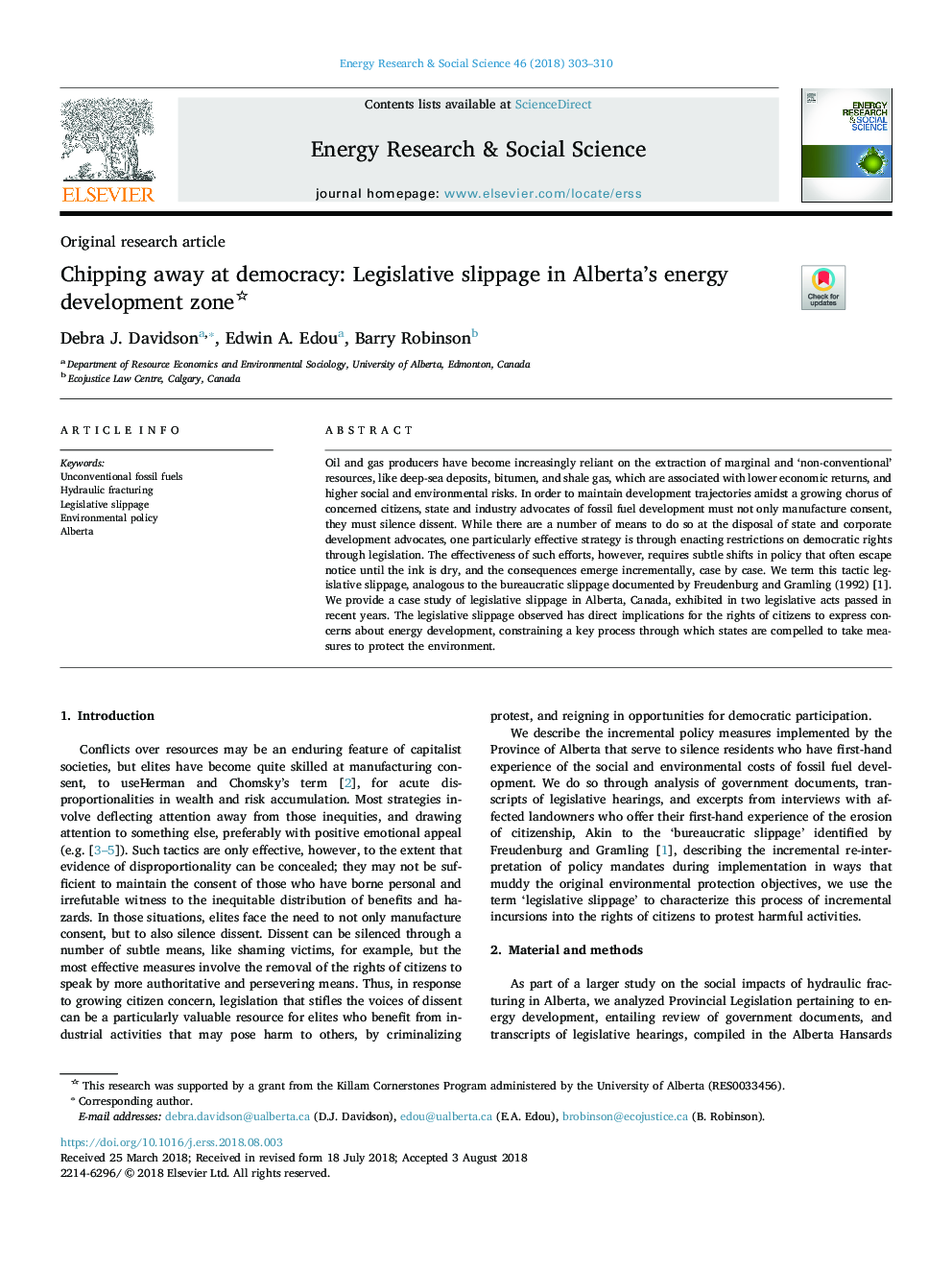| Article ID | Journal | Published Year | Pages | File Type |
|---|---|---|---|---|
| 6557120 | Energy Research & Social Science | 2018 | 8 Pages |
Abstract
Oil and gas producers have become increasingly reliant on the extraction of marginal and 'non-conventional' resources, like deep-sea deposits, bitumen, and shale gas, which are associated with lower economic returns, and higher social and environmental risks. In order to maintain development trajectories amidst a growing chorus of concerned citizens, state and industry advocates of fossil fuel development must not only manufacture consent, they must silence dissent. While there are a number of means to do so at the disposal of state and corporate development advocates, one particularly effective strategy is through enacting restrictions on democratic rights through legislation. The effectiveness of such efforts, however, requires subtle shifts in policy that often escape notice until the ink is dry, and the consequences emerge incrementally, case by case. We term this tactic legislative slippage, analogous to the bureaucratic slippage documented by Freudenburg and Gramling (1992) [1]. We provide a case study of legislative slippage in Alberta, Canada, exhibited in two legislative acts passed in recent years. The legislative slippage observed has direct implications for the rights of citizens to express concerns about energy development, constraining a key process through which states are compelled to take measures to protect the environment.
Related Topics
Physical Sciences and Engineering
Energy
Energy (General)
Authors
Debra J. Davidson, Edwin A. Edou, Barry Robinson,
